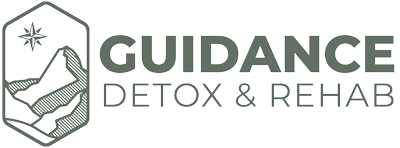Detoxing from drugs or alcohol is a critical step in the recovery process, therefore how the process is approached matters greatly. Quitting substances “cold turkey” may seem like the quickest way to get clean, but it can actually be dangerous and, in some cases, life-threatening.
In this article, we’ll explain the real risks of cold-turkey detox, what symptoms to expect, and why medically supervised detox is the safer route.

Why Cold-Turkey Detox is Risky
Cold-turkey detox may seem appealing to those eager to make a clean break from drug or alcohol use. However, the body and brain become physically dependent on many substances over time. When you remove them suddenly, your system struggles to adapt, leading to withdrawal symptoms that can range from uncomfortable to dangerous.
Different substances affect the body in different ways. The abrupt cessation can cause extreme physical stress, especially when the central nervous system is involved. This stress can disrupt heart rate, blood pressure, and respiration. Without clinical supervision or access to a medical detox program, the person may not have the tools or support needed to manage complications that arise, increasing the chances of medical emergencies and poor outcomes.
Physical Health Risks of Cold-Turkey Detox
The body becomes physically dependent on substances like alcohol, benzodiazepines, opioids, and stimulants. Stopping suddenly can trigger a range of serious physical symptoms:
- Alcohol withdrawal can cause seizures, hallucinations, heart arrhythmias, and a life-threatening condition called delirium tremens (DTs).
- Benzodiazepine withdrawal may result in panic attacks, seizures, and rebound insomnia.
- Opioid withdrawal often leads to extreme flu-like symptoms, dehydration, and increased risk of relapse due to discomfort.
- Stimulant withdrawal can cause cardiac issues, severe fatigue, and suicidal ideation.
In all these cases, unsupervised detox can lead to medical emergencies that require immediate intervention. What’s more, some symptoms may escalate unpredictably, making it difficult for individuals to manage them alone.
Mental and Emotional Dangers
Cold-turkey detox often causes intense mood swings, anxiety, depression, hallucinations, and psychosis. The emotional distress during this period can significantly increase the risk of self-harm or suicidal thoughts, especially for individuals with co-occurring mental health disorders.
On top of that, cognitive confusion and disorientation during detox can impair decision-making. Without a structured environment and professional support, people are more likely to return to substance use in an attempt to stop the emotional and psychological pain.
High Risk of Relapse
Detoxing cold turkey without a long-term recovery plan increases the chances of relapse. This isn’t just a matter of willpower—it’s a biological response. After quitting, the body’s tolerance to the substance quickly drops. If someone relapses and uses the same amount they were accustomed to, it can easily lead to overdose.
Moreover, the psychological stress of withdrawal can make it extremely difficult to resist cravings. People often return to substances simply to escape the withdrawal process, creating a cycle that is harder to break with each attempt.

Hidden Dangers: Pre-existing Conditions and Polysubstance Use
Many people who attempt cold-turkey detox may not be aware of underlying health issues that could be aggravated during withdrawal. For instance, individuals with heart conditions may experience arrhythmias or elevated heart rate due to the physical stress of withdrawal. Those with high blood pressure could face hypertensive episodes or even stroke, while people with seizure disorders are especially vulnerable to withdrawal-induced seizures, which can be life-threatening.
Polysubstance use—taking multiple drugs or mixing alcohol with medications—further complicates the process. Each substance has its own withdrawal timeline and symptoms. Managing detox at home increases the risk of complications and makes it difficult to distinguish between symptoms that are expected and those that are emergencies.
Why Medically Supervised Detox Is the Safer Option
Medically supervised detox programs offer a controlled environment where withdrawal symptoms can be managed safely. Healthcare providers use protocols and medications to ease symptoms, monitor vital signs, and respond to complications as they arise. Learn more about the distinction between medical and non-medical detoxification here.
These programs are designed to provide both emotional support and clinical oversight, which reduces the risk of self-harm, relapse, and medical emergencies. Instead of simply surviving detox, patients are guided toward the next steps in their recovery, whether that means entering a treatment program, beginning therapy, or joining a support group.
Final Thoughts from Guidance Detox & Rehab
Going cold turkey may seem like the fastest route to recovery, but for most people, it poses serious health risks and offers no real support for long-term sobriety. The dangers—from seizures to psychological breakdowns—are too significant to ignore.
At Guidance Detox & Rehab, we understand the complex physical and emotional challenges of substance withdrawal. Our upscale medically supervised detox programs in Utah are designed to ensure safety, reduce discomfort, and help individuals build a solid foundation for recovery.
